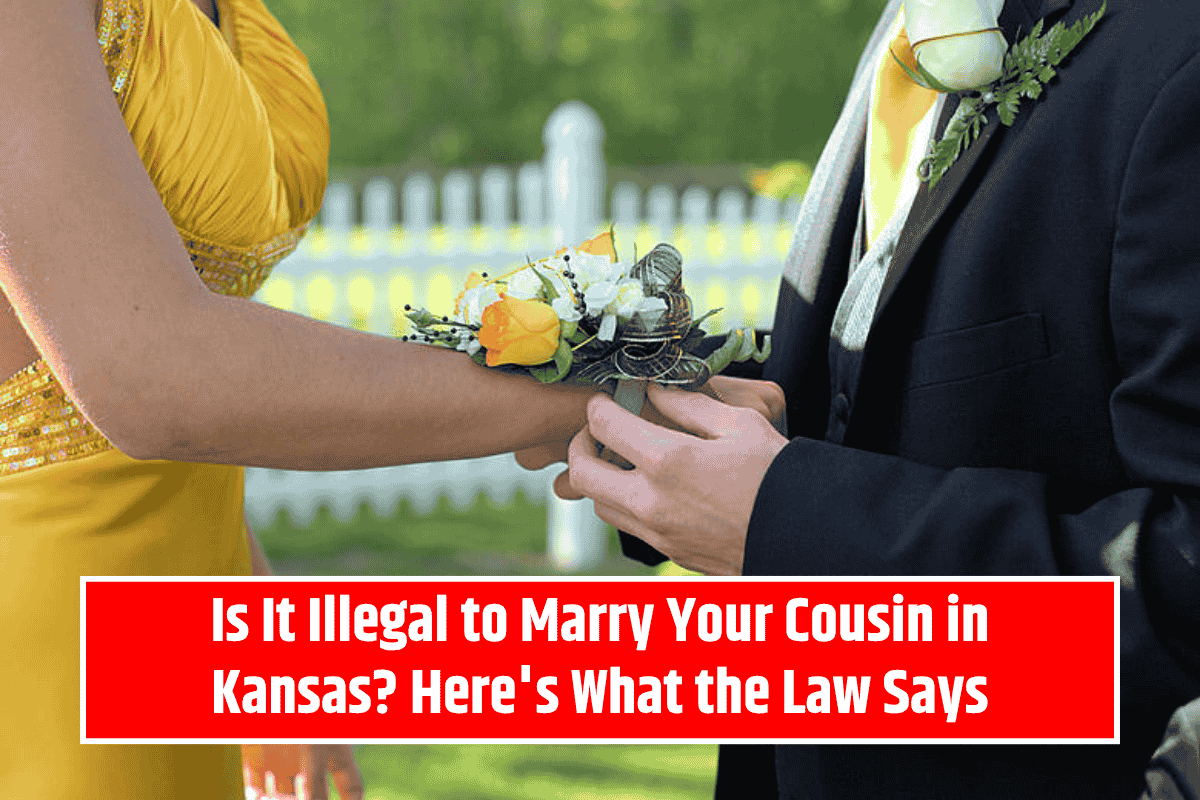Marriage laws vary across the United States, especially when it comes to family relationships. In Kansas, the rules are strict about marrying close relatives. If you’re wondering whether first cousins can legally marry in Kansas, the answer is clear: they cannot. This article explains Kansas’s laws on cousin marriage in simple terms and answers related questions you might have.
Is First Cousin Marriage Legal in Kansas?
No, Kansas law strictly forbids marriage between first cousins. According to the state’s laws, any marriage between first cousins is considered incestuous and completely void. This means the marriage has no legal value and will not be recognized by the state under any situation.
Which Family Relationships Are Not Allowed to Marry?
Kansas law clearly lists close family relationships where marriage is illegal. These include:
Parents and children (including grandparents and grandchildren)
Brothers and sisters (including half-siblings)
Uncles and nieces, aunts and nephews
First cousins
If people from any of these relationships try to marry in Kansas, their marriage will be legally invalid.
Are There Any Exceptions to This Rule?
No, Kansas has no exceptions. Unlike some states that allow cousin marriages under special conditions, such as age or infertility, Kansas does not allow first cousins to marry for any reason. This rule applies to everyone equally without exception.
What About Marrying More Distant Relatives?
The law is different for more distant cousins. Kansas allows marriage between more distant relatives such as:
First cousins once removed – Legal
Second cousins – Legal
These family relationships are not considered too close, so marriage between them is allowed under Kansas law.
Can You Marry Your First Cousin in Another State?
While Kansas bans first cousin marriage within its borders, it recognizes cousin marriages performed legally in other states. If you marry your first cousin in a state where it is allowed—such as California or Colorado—Kansas will accept your marriage when you return.
However, two conditions must be met:
It must be legal in the state where the marriage took place.
It must not go against Kansas public policy to the extent that courts find it unacceptable.
The Kansas Supreme Court has ruled that first cousin marriages legally performed in other states are valid in Kansas.
Summary Table of Cousin Marriage Laws in Kansas
| Relationship | Marriage Legal in Kansas? |
|---|---|
| First Cousins | No |
| First Cousins Once Removed | Yes |
| Second Cousins | Yes |
| First Cousin Marriage Performed in Another State | Recognized if legal where performed |
In Kansas, you cannot legally marry your first cousin no matter your age or situation. Such marriages are considered incestuous and void under state law. However, if you marry your first cousin in another state where it is legal, Kansas will recognize your marriage as long as it meets that state’s laws and does not strongly conflict with Kansas public policy.
It’s important for couples to understand both local and national marriage laws, especially when family relationships are involved. Always consult legal experts if you have questions. Knowing the law helps you stay within the rules and protects your relationship under state law.












